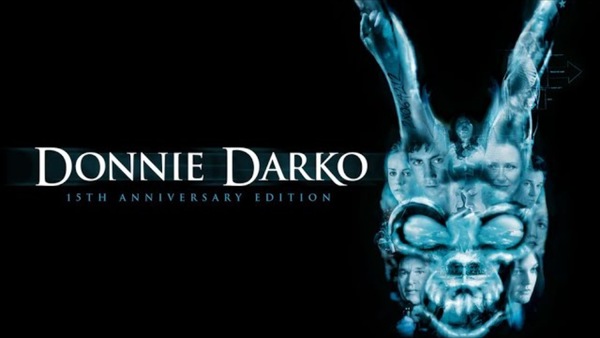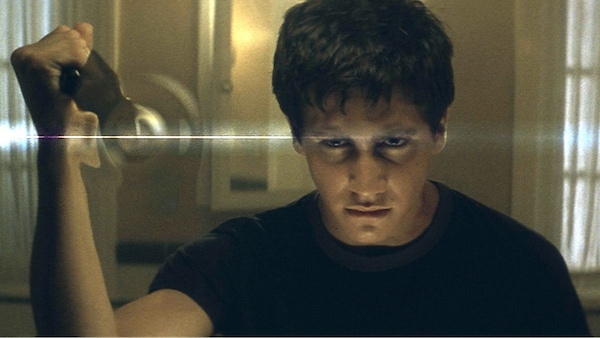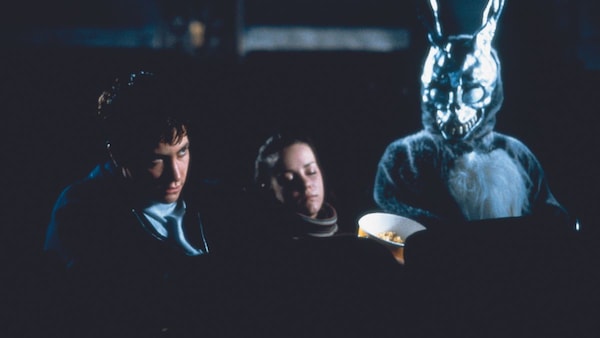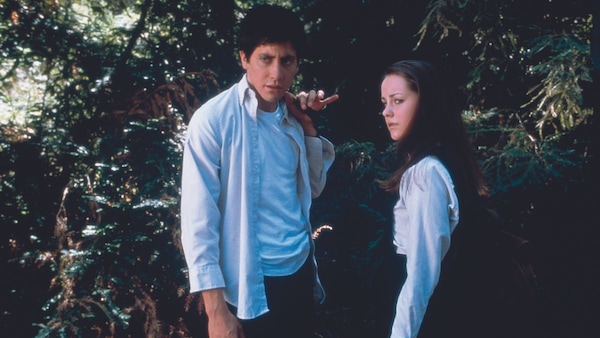Donnie Darko: eerie, beautiful, heartbreaking
Thriller Thursdays: When a hideous bunny instructs a troubled boy to create anarchy, a strange logic makes destruction a way to find an enigmatic balance.

Last Updated: 12.06 AM, Nov 18, 2022
There is thunder in the background, as if the sky is cracking up and in the middle of the road lies an inert body of a boy, beside a cycle lying alongside. It’s dawn and there are hills all around. The boy wakes up, looks around, his feet are naked— and he smiles to himself. He cycles back home and sees his family having dinner. Dukakis is under discussion on the table— it’s those years! — and suddenly, the discussion goes awry. The boy becomes incredibly hostile, and single handedly gets on everyone’s nerves. And to top it all, he calls his mother a bitch.
Adolescence? Teenage angst?

It’s October 2, 1988. Donnie, the boy, is sleepwalking and steps out of the house and encounters a creature— a hideous-looking bunny named Frank— who tells him that the world will soon end. And soon enough, an airplane engine falls into Donnie's house, crashing into his room, but he survives because he was out sleepwalking.
Weird? Sci-fi? Horror?
Yes, all that, and more.
Donnie Darko is a cult classic, brimming as it is with ideas and concepts and themes woven into the common American suburban life. So there’s time travel, growing-up blues, puppy love, teenage bullying, familial bonding, and heart-breaking ways of redemption.
Donnie (Jake Gyllenhaal) is just a teenager, but not quite ordinary, as we discover soon enough. He regularly visits a shrink, and is in turn regularly visited by the aforementioned giant, ugly bunny.

The psychotherapist Dr Thurman (Katharine Ross) tells Donnie’s parents that he is having daylight hallucinations, which is a common occurrence among paranoid schizophrenics. And the bunny tells Donnie the world is coming to an end in 28 days, 6 hours, 42 minutes and 12 seconds.
The paranoia with the bunny slowly pulls Donnie into a vortex of arson and recklessness, with seemingly random targets. But a strange logic seems to emerge as events occur, and Donnie discovers it in conversations with his science teacher and in unravelling the life of a mad woman everybody calls Grandma Death.
Donnie Darko is a cornucopia of ideas, but the question of why Donnie is the chosen one has an answer which really is at the heart of the film’s message— Donnie’s boldness, his ability to stand up to what he perceives as wrong, his intrinsic gentleness, his determinism as it were, all pave the explanation as to why he is possibly chosen, and what, in a particularly evocative denouement, he decides to do.
Jake Gyllenhaal as Donnie is cute and young but there’s something irresistibly off about him, borne out in his enigmatic smile, unhinged laugh and a look into his eyes. Despite being one of his earlier films, Jake Gyllenhaal displays a roguish verisimilitude to this character, and one begins to trust Donnie even if they don’t understand him. When Gretchen tells him that his name, Donnie Darko, seems like a name fit for superheroes, he very firmly asks “Why do you think I’m not?”
There’s a fine contrarian complexity which is weaved into Donnie's character, as someone bold and rude enough to tell truths, even as he struggles with first love, subjects he hates and teachers he detests. And within the grid of his weathered world, he’s an unlikely harbinger of destructive change to problems he can sense but can’t understand. As the film finally unravels its intricate tapestry, Donnie’s determinism is brought into sharp relief.

Director Richard Kelly had to wait four years to see his story come to screen. And the release was beset with contemporary issues— an airplane engine vis-à-vis 9/11, Donnie carrying a gun vis-à-vis school shootings— but the film has since, deservingly, gone on to become one of the most discussed films of our times. Even within the constraints of an incredibly tight budget, it weaves in stylistically satisfying intellectual flourishes. There is an entire sequence shot inside a school in a slo-mo montage with a shifting rhythm to the beat of Head over Heels by Tears for Fears, as it introduces its characters as they go about in their own ways, evoking a sense of a rite of passage. The way a school play’s intercut with Donnie's arson, and the introduction of the marvellous cover of "Mad World" sung by Gary Jules as the present becomes past, and everybody whose life was touched by Donnie find a strange synchronicity with their lives, not understanding what was giving them a sense of prescience and unease.
Conjoined as it is with references to Graham Green's short stories or the fun of the double-bill cinema show of The Evil Dead with The Last Temptation of Christ, to the infinite tenderness which Donnie's parents have for him, a very human, loving and caring response to his impossibilities, the film is a tapestry of small touches on top of its big ideas.
And like in the best of movies, within its structure of complex ideas lies its overriding arc of emotions, as it engenders fright, love, tears, hope, terror in its unfurling, without missing a beat or trying too hard to coexist within these contradictions. And in that crucible of paradox, it gently holds, and gives its meaning.
Trivia:
1, The cover of "Mad World" by Tears for Fears, done here by American musicians Gary Jules and Michael Andrews, went on to become No. 1 on the UK Music Singles Chart for three weeks.
2. If it wasn't for the intervention by Christopher Nolan, the film was going to be released directly to cable and satellite release.
3.It was while she was shooting on the set of Charlie's Angels that Drew Barrymore agreed to produce the film with a budget of $4.5 million. Director Richard Kelly confirmed that if Drew Barrymore hadn't come in as producer, the film would have gone straight to video or cable TV.
Watch Donnie Darko here.
(Views expressed in this piece are those of the author, and do not necessarily represent those of OTTplay)
(Written by Sunil Bhandari, a published poet and host of the podcast ‘Uncut Poetry’)

